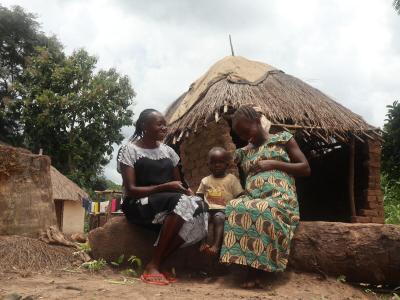publication / November 17, 2025
Using the C3 Tool to Estimate CHW Workload Poster
World Vision applied the CHW Coverage and Capacity (C3) Tool in 43 countries to assess CHW workloads and take action to prevent overwork.
article / December 10, 2025
School Feeding is Reshaping Local Markets, Turning Small Producers Into Key Suppliers
USDA-backed school feeding in Mozambique empowers farmers to supply fresh produce, boosting local markets and sustainable practices.
article / November 25, 2025
DR Congo: From Training to Action - New Tools for Community Health Relays To Fight Child Mortality in Kasai
This article highlights how the Rotary Healthy Communities Challenge (RHCC), implemented by World Vision in partnership with PATH and Rotary, is strengthening community health in Kasaï Province, DRC. By training and equipping community health relays with skills, handwashing kits, and bicycles, the project aims to reduce child mortality caused by malaria, acute respiratory infections, and diarrhoeal diseases. Through improved access to primary health care and a reinforced network of community health sites, the initiative seeks to protect more than 221,000 children under five in some of the most vulnerable and hard-to-reach areas.
publication / December 15, 2025
East Africa Graduate Learning Experience (EAGLES)
A year of learning, service and becoming. We are honoured to share the EAGLES Internship Programme Magazine, capturing the growth, gratitude, and resilience of our second cohort.
publication / November 26, 2025
Channels of Hope User Guide 2025
"Channels of Hope User Guide: Practical steps and curricula for faith-based engagement to drive transformation and collective action."
video / December 9, 2025
How to Cope With Fear and Stress - Mental Health Support for Palestinian Children
In vulnerable communities in the West Bank, children and caregivers have a lot of reasons to feel fear and stress amid unprecedented violence and restrictions. Through a BMZ-funded project implemented by World Vision and local partner Juzoor, adolescents build life skills, learn to understand their emotions, and support their friends, while parents discover positive parenting tools that transform relationships at home.
publication / November 18, 2025
CHW AIM-Checklist Poster
World Vision created a CHW-AIM checklist to guide NGOs in responsibly supporting community health workers and aligning with national health systems.
article / November 18, 2025
World Vision Wins Two Anthem Awards for Innovative Laser Device for Measuring Child Growth
World Vision wins two Anthem Awards for its innovative laser device that makes measuring children’s growth easier, faster, and more accurate worldwide.
opinion / December 1, 2025
Are We Serious About Children’s Justice or Still Comforted by Declarations?
New findings from UNICEF’s State of the World’s Children 2025 remind us that more than 417 million children are severely deprived in at least two essential areas of life.
press release / December 11, 2025
Children and women are the main victims of the ongoing clashes between the AFC/M23 and the FARDC in South Kivu
This press release conveys World Vision’s alert regarding the severe deterioration of the situation in the eastern Democratic Republic of Congo. Recent clashes that led to the capture of Uvira, in South Kivu, by AFC/M23 rebels, a highly strategic town, have resulted in the deaths of many women and children, while triggering large-scale displacement towards Rwanda and Burundi.
In a context where humanitarian actors are critically short of resources to meet urgent needs, this press release also serves as an urgent call for strengthened support to help save lives.









